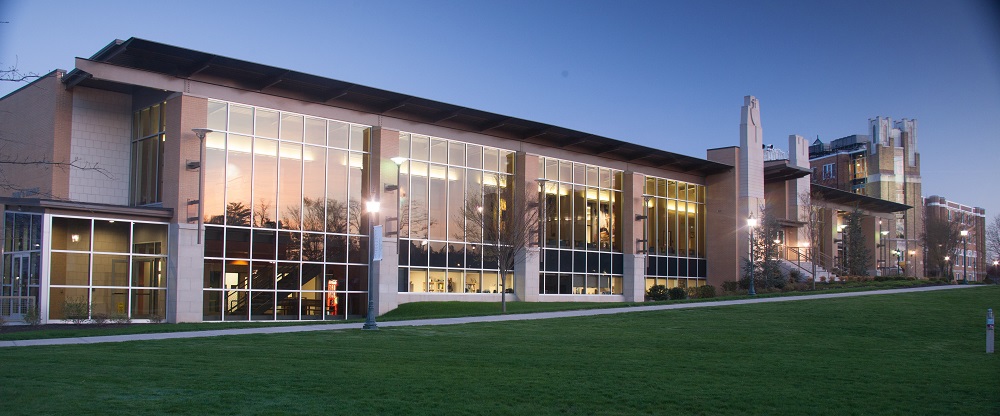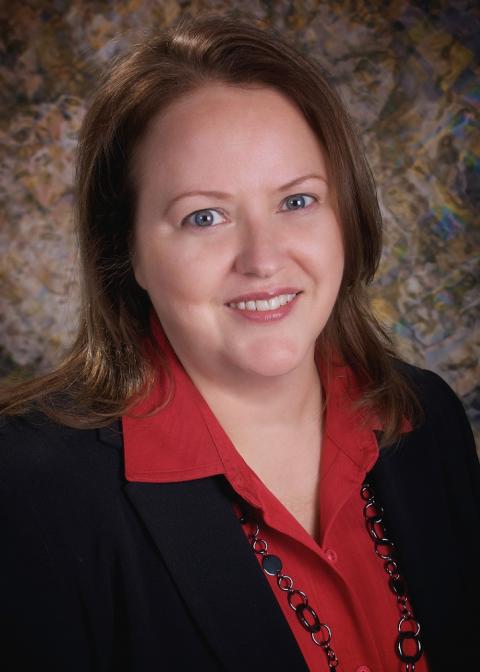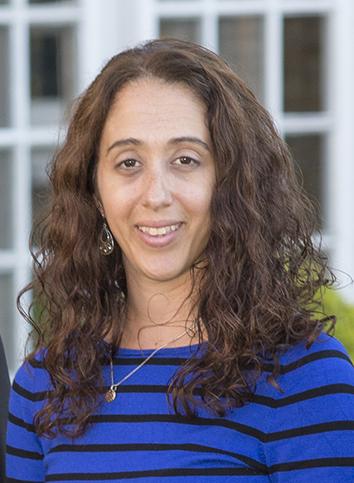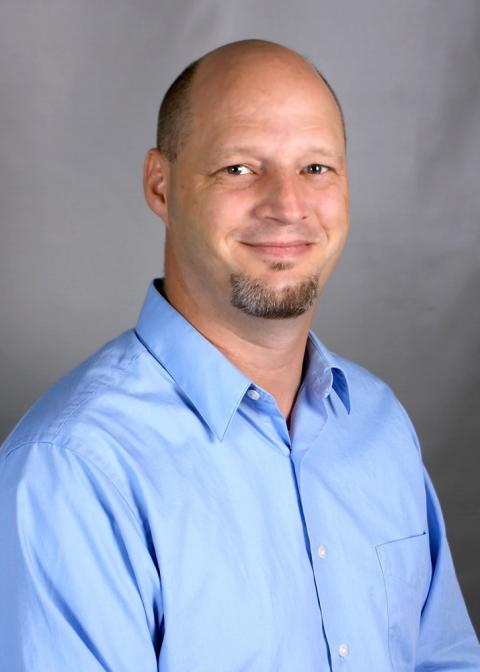
Sandy and Marlene Insalaco Hall on the campus of Misericordia University in Dallas, Pennsylvania (Courtesy of Misericordia University)
Several Catholic colleges and universities are already ahead of the curve in their efforts to support the increasing population of students with special needs who are pursuing higher education.
"Students are realizing that just because they have a disability ... that does not mean you cannot go to college," said Kristen Ricardo, assistant director of the Student Success Center/Office for Students with Disabilities at Misericordia University in Dallas, Pennsylvania. "There are still opportunities."
Misericordia's Alternative Learners Program, like Mercyhurst University's Learning Differences Program and its Autism Initiative at Mercyhurst (known as AIM), and St. Joseph's University's Autism Support Promoting Inclusive and Responsive Education program (known as ASPIRE), is designed for students who are capable of successfully completing regular college coursework, but need special accommodations or extra support.
Colleges and universities that receive any federal funding are required by the Americans with Disabilities Act to provide free accommodations -- such as sign language interpreters, testing in a low distraction environment or access to assistance technology -- to students with disabilities.
Catholic universities with more intensive programs accommodate these needs, but also provide additional services such as case management, summer programs, employment support or even specialized housing. The extra focus on students who may be at risk of marginalization is often a good fit with their mission.
While all four programs charge an additional fee, ranging from about $2,500 per academic year to over $6,000, they all offer scholarships or are in the process of creating them to make the programs accessible to more students. They also consider the programs' existence an important part of their identity.
"This really is one of the examples of how we live out our mission of 'all are welcome,' " Ricardo said.
Advertisement
She added that the university is supportive of the program, both in providing resources and in cooperating with students' requests for accommodations. "I think because this program has been around for so long, we don't face a lot of the challenges, maybe, that some others do," she said.
"It's as closely aligned with our mission as anything I can think of," Laura Zirkle, vice president for student life at Mercyhurst University in Erie, Pennsylvania, said of its Learning Differences program. "Being able to be successful at our university so that you can go out into the world is critical."
The ASPIRE program also fits well with St. Joseph's University's Jesuit mission, Theresa McFalls, associate director of community outreach for the Philadelphia university's Kinney Center for Autism Education and Support, said in an email to NCR. The center promotes the Jesuit value of cura personalis, care for the whole person, she said.

Laura Zirkle (Courtesy of Mercyhurst University)
The Kinney Center strives to get the whole university involved by training faculty, staff and students, McFalls added. "Our work with ASPIRE students, in helping them acclimate to campus, get involved, feel included, feel empowered, aligns directly with the Jesuit mission" to reach out to marginalized people, she said.
In striving to fulfill their missions, these Catholic universities offer a variety of support. At Misericordia, which developed an Alternative Learners Program in 1979, first-year students can participate in a program that allows them to arrive on campus a week early and participate in assessments and workshops to identify their strengths and needs.
Students also meet weekly with a coordinator who provides individualized support, such as discussing accommodations, improving study skills or scheduling tutoring, said Ricardo.
Mercyhurst prides itself on having "worked out a lot of the kinks" in providing accommodations to students, since its efforts to assist students with disabilities began before they were required by law, said Zirkle.

Kristen Ricardo (Courtesy of Misericordia University)
The Learning Differences office also offers a three-week summer program to help students with special needs transition to college, and weekly meetings with an academic counselor through the Academic Advantage Program.
AIM, Mercyhurst's program for students with autism, started as part of the Learning Differences Office about 10 years ago, but has now grown into an independent program.
Students in AIM live in housing with a trained coordinator and receive academic support, social skills training, independence training, vocational training and peer mentorship, said AIM director Brad McGarry. The program has also sponsored student trips to raise autism awareness and help increase confidence and skills.
McGarry said that while 13-15 percent of adults with autism nationally are employed, about 64 percent of AIM graduates are meaningfully employed.
The program has been working with major companies, "giving our students opportunities, but also helping train those companies on how to better handle and employ folks on the autism spectrum," said McGarry. "They're also providing a service because they're an ambassador to many other people."

Brad McGarry (Courtesy of Mercyhurst University)
The Kinney Center at St. Joseph's University has two purposes: to educate prospective autism professionals while providing support for individuals affected by autism.
Students in the ASPIRE program -- which offers case management, peer mentorship, skills classes, special study halls and supported employment to students with autism -- are assisted by their classmates in the Students Committed to Helping Others Learn about Autism Research and Support (SCHOLARS) program who serve as peer mentors.
After their first two years, ASPIRE students are offered a job through the SCHOLARS program and can become mentors themselves.
"This is dually valuable in that the ASPIRE student continues to benefit from the social interaction but is now is a position of leadership, boosting self-confidence," McFalls said.
While only about 20 percent of college students on the autism spectrum complete their degrees, 85 percent of ASPIRE students complete theirs, and all program graduates are currently employed or in graduate school, said McFalls.
Compared to academic success stories, McFalls said, stories of students who "moved onto campus with a roommate, the students who pursued study abroad opportunities, students who joined clubs, who made friends, who went to parties and on dates," may sound trivial, but are "huge" for those students and their parents.
Changes in the diagnostic criteria for autism in the 1990s have contributed to a surge of students on the autism spectrum seeking to attend college in recent years, said McGarry. His program has helped more than a dozen schools around the world launch similar initiatives.
Zirkle attributed the increased demand to greater awareness of available support, a growing range of services that can benefit more students, and improved diagnosis and college preparation throughout grade school and high school.
"It allows a lot of folks who maybe 30 years ago wouldn't have thought college was for them to be able to come to college and be successful," said Zirkle.
Ricardo agreed that awareness and better support at earlier levels of school have contributed to the growth.
Misericordia is spreading the word that "there are programs like this at the college level and they can still get the same support and structure they're looking for, but while they're taking their college courses," she said. "We don't modify curriculum and we don't make changes to programs. We are just supporting them as they're going through it."
[Maria Benevento is an NCR Bertelsen intern.]








